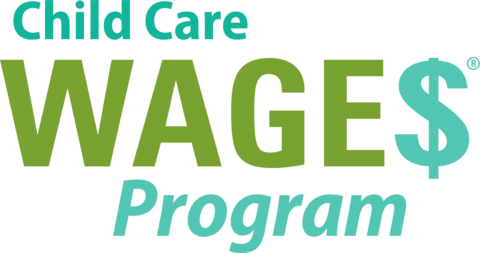An Essential Workforce
COVID-19 has created challenges for everyone, and we are all anxious to see improvement. We want to feel safe and be healthy, and we want the economy to rebound. In the meantime, though, the early childhood workforce has stepped up to help others work despite the risks to their own health. Many are barely holding on because they are operating at 50% capacity, which cannot sustain the child care industry. Is there a positive in all of this? Finally, early educators have been recognized publicly as the essential workforce they are, and the field’s critically low compensation has received national attention.
Increasing Compensation Now
While salary supplement programs may not be the ultimate solution for increasing compensation in the early childhood field, they can provide immediate support to a deserving workforce. The Child Care WAGE$® Program was created by Child Care Services Association to address this very important need and to increase workforce retention and education. The program provides education-based salary supplements to eligible teachers, directors and family child care providers in counties that have elected to fund the supplements with their Smart Start dollars. The NC Division of Child Development and Early Education provides funding to support the program administration.

What this means is participating early educators receive additional money each six-month period they spend in the same child care program, an average payment of $993 for FY20. While these are issued in lump sum payments after each successful six-month period, they break down to approximately $0.95 more per hour for a full-time employee, which is a meaningful increase.
Workforce Support with Results
WAGE$ participants value this program, with 98% of survey respondents saying these supplements help ease financial stress. Knowing that stress can affect a teacher’s interactions in the classroom, this financial assistance is critical on many different levels.
As one WAGE$ participant said, “The WAGE$ Program is a huge help financially. It alleviates stress that I didn’t realize was snowballing into my classroom.”
Another said, “I think the WAGE$ Program is important because child care workers are underpaid and the supplement helps ease a lot of stress financially. I think the less stress we have as child care workers, the better teachers we can be to the children in our care.”
WAGE$ began as a county pilot more than 25 years ago, and has consistently shown an impact on retention and education. Before April, when the pandemic became a critical issue for North Carolina, only 12% of WAGE$ participants had left their child care programs in FY20. The turnover rate for the previous full year was 14%.
WAGE$ participants are well-educated, with the vast majority having at least their associate degree with extensive early childhood coursework, and others working toward their degrees. Ninety-eight percent (98%) of participants surveyed indicated that this supplement had an impact on either their inclination to stay in the field or their pursuit of further education.
In the 55 counties participating in FY20, 3,880 early educators received a supplement. Compensation matters, and these recipients were clear about the impact WAGE$ has for them, their families, the children they serve and their employers.
One participant summed it up this way: “The supplement has been the difference between my staying in this field versus finding a better paying job. Teachers should never have to work two or three jobs simply to ‘afford’ this job. The supplement, in my particular case, means my employer has one less teacher turnover and my students have had a teacher who is there year after year. Please continue to fight for this funding. In a field that is so important to giving children the best possible start, it is very important to do whatever is possible to keep the turnover rate low and teacher satisfaction high.”
Supporting This Strategy
The Child Care WAGE$® Program is approved by the North Carolina Partnership for Children as a strategy for any local Smart Start partnership that wants to participate. The entire amount allocated by the partnership goes directly into supplements, so right back into the supporting community. Though FY21 is already underway, counties may still join WAGE$ and provide this opportunity for increased compensation. With the field in crisis, there has never been a better time to offer this support. For more information, contact WAGE$ at Child Care Services Association at 919-967-3272.
For more information on funding WAGE$, go here.
For more information on WAGE$ results, view the Child Care WAGE$® Statewide Final Report for FY20.



